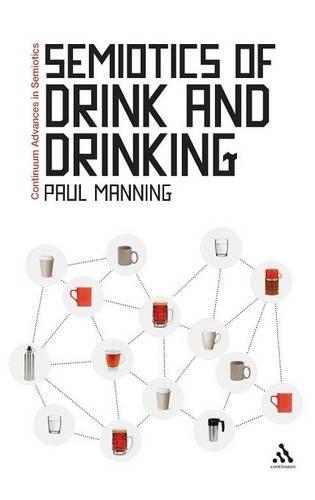
Semiotics of Drink and Drinking
(Hardback)
Available Formats
Publishing Details
Semiotics of Drink and Drinking
By (Author) Dr Paul Manning
Continuum Publishing Corporation
Continuum Publishing Corporation
17th May 2012
United States
Classifications
Professional and Scholarly
Non Fiction
Consumerism
306.4613
Winner of Edward Sapir Book Prize awarded by The Society for Linguistic Anthropology 2013 (United States)
Physical Properties
Hardback
256
Width 156mm, Height 234mm
Description
Drink, as an embodied semiotic and material form, mediates social life. This book examines the fundamental nature of drink through a series of modular but connected ethnographic discussions. It looks at the way the materiality of a specific drink (coffee, wine, water, beer) serves as the semiotic medium for a genre of sociability in a specific time and place. As an explicitly comparative semiotic study, the book uses familiar and unfamiliar case studies to show how drinks with similar material properties are semiotically organized into very different drinking practices, including ethnographic examples as diverse as the relation of coffee to talk (in ordering at Starbucks). Further chapters look at the dryness of gin in relation to the modern cocktail party and the embedding of beer brands in the ethnographic imagination of the nation. Rather than treat drinks as mere props in the exclusively human drama of the social, the book promotes them to actors on the stage.
Reviews
From coffee to vodka, and from wines to waters, Manning brings to life the extraordinary registers of meaning across everyday practices. By his bright telling, modernity itself can be understood anew through a tale of multiple imbibings. This delightful book should find a wide readership among anthropologists, historians, and sociologists, as well as scholars of the modern age, semiotics, and food studies. -- Bruce Grant, Professor of Anthropology, NYU, USA
How much of social life flows from what we drink, when and how we drink it, and with whom!Through a glass clearly and with great ethnographic and semiotic insight, Paul Manning brilliantly contextualizes the potables of American capitalist modernity - (gin) martinis, for instance, and Starbucks coffee - as well as those of Georgian socialism and post-socialism - vodka, beer, wine, and fizzy drinks - revealing their central place in the cultural worlds in which they are produced and consumed.The introductory "aperitif," a treatise in miniature on the proper semiotic study of materiality, will become an instant reading-list classic, as will, no doubt, the entire lively and fascinating book.' -- Michael Silverstein, Charles F. Grey Distinguished Service Professor, University of Chicago, USA
Author Bio
Paul Manning is an Associate Professor of Anthropology at Trent University, Canada.
